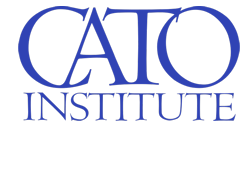Stephen Richer
Stephen Richer
“Our Constitution entrusts Congress and the States—not the President—with the authority to regulate federal elections.” —Colleen Kollar-Kotelly, United States District Judge
On April 24, US District Court Judge Colleen Kollar-Kotelly blocked the highest profile part of President Trump’s March 25 executive order on election administration. That part, Section 2(a), directed the United States Election Assistance Commission to change the federal voter registration to require documented proof of citizenship.
I’ve written before that I agree with the president’s aspiration to require documented proof of citizenship for all American voters. Currently, federal law only requires legal attestation of citizenship.
But, as Walter Olson wrote previously for this blog, “Of the various components of the order, there are some that I might agree would be good ideas .… But the substantive merits shouldn’t be at center stage here. New laws should be passed by lawmakers, not by decree.”
Judge Kollar-Kotelly agreed with Olson; the executive order is procedurally and legally deficient. The president does not have unilateral authority to shape election policy.
This should have been obvious to the president. After all, the Congress passed the National Voter Registration Act in 1993, and that major piece of federal election law specifically assessed proof of citizenship: “The Conference Committee on the bill that became the NVRA considered and rejected an amendment proposed … to require presentation of documentation relating to citizenship of an applicant for voter registration.”
More obviously, the US Senate is currently considering the much-discussed SAVE Act, which proposes to do the very thing the president wants—require proof of citizenship for voters. Congress wouldn’t go to the trouble of drafting, negotiating, and politicking the bill if it could simply be done by the president with one signature.
In addition to ignoring the Congress, President Trump’s Executive Order also forgets that states possess “the power to regulate the time, » Read More
https://www.cato.org/blog/federal-judge-president-trump-cant-unilaterally-rewrite-election-law






